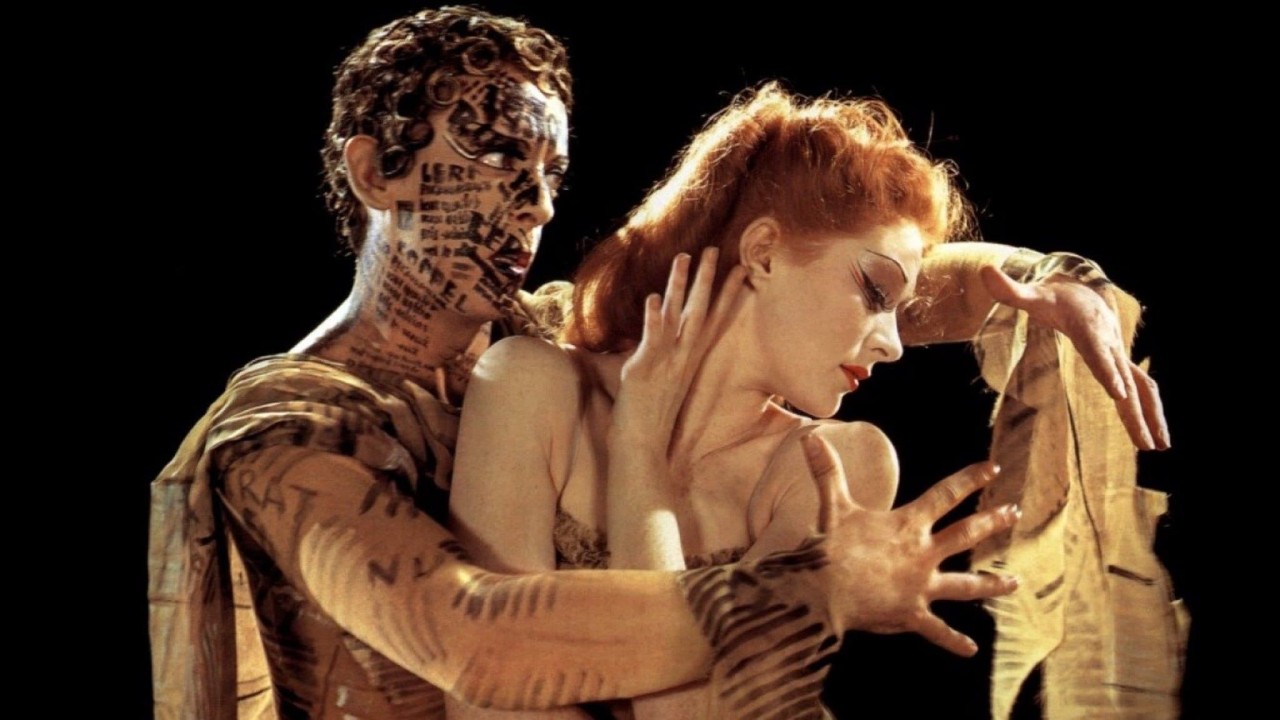By Charles Schwenk
Amongst film aficionados, the more simple-minded or shy smut fans, and the strong and growing coterie of Paul Schrader enthusiasts, Hardcore was awaited with special enthusiasm; yet all seem to have walked away in varying degrees of disappointment. Perhaps they were expecting the violence and vivid iconography, the heavy, hellish metaphors of Taxi Driver; perhaps there was a sense of unfulfilled possibilities, that a brilliant premise was somehow uncharged with the expected degree of eroticism or politics. Without a doubt, the genius of the premise allows one to forget cinematic antecedents, films such as Joe (also with Peter Boyle), and Taking Off, both of which were concerned with the “hippie” underground, and Hustle, which had a subplot involving Ben Johnson’s brief search for the murderers of his daughter in the L. A. smut-film world. The more austere European influence was apparently felt but unrecognized—not that it would have made any difference to the popular audience. Schrader’s trust in his audience seems misplaced; his desire to coolly let both worlds of purity and porn meet and briefly merge without undue sensationalism, while nevertheless himself remaining emotionally and intellectually involved, was unperceived by the popular audience (not enough thrills) and overlooked by the film buffs (references not obvious enough). This “flatness” of approach, however, should not distract one from the surprising variety of visual technique. One thinks of the surprising leaps to overhead shots at moments of “divine” judgment on Jake: his foul-mouthed exit from the Stairway to Love, the criss-crossing grating that serves as a ceiling at once a token of his feeling of imprisonment and exclusion from the cold and incomprehensible world of pornography, as well as his separation from God; also the, again judgmental, shot of Jake as he beats and sprays Jism Jim (one is also aware of this, however, as the solution to the purely technical problem of how to shoot a shower scene); and finally, the sublime combination of editing, camera placement, camera movement, and performance, which make Jake’s viewing of his daughter’s smut film one of the great scenes in recent American film.
Jake is the principal focus of the film’s double-meaning title, the hardcore religious man who challenges and triumphs against the world of explicit hardcore sex. His daughter, the impetus for this journey, is relatively unemphasized, Schrader has said, so as not to imbalance this focus. We don’t learn biographical reasons for her sudden flight, though the early shot of Jake’s nephew as he reacts to his mother’s question (“You would never let that happen to your mother, would you?”), which occurs at just the moment Jake learns by telephone of his daughter’s disappearance, is indication enough of the sort of repression-by-guilt that youth, in this small society, might find insufferable compared to the temptations that exist all around. Kristen is as much a stranger to us as she is to Jake. As Schrader said to Robert Bresson in his Film Comment interview (Sept.-Oct., 1977, page 26-29), “Symptoms are universal, causes are particular. Symptoms are more interesting because we all have the symptoms, but we have different causes. Movies should be about symptoms, rather than about causes” (page 29).
It is Jake’s town, full of children playing in the snow, upon which the red, sexual word “hardcore” is emblazoned during the credits. The white snow and the cold climate suggest the severity and striven-for purity of the Grand Rapids populace. (To carry the metaphor on, the snow only covers the dirt, however; even Grand Rapids has an adult bookstore.) Against nature’s cold, the family congregates, has Thanksgiving dinner, watches television, discusses religion, and gives thanks. This is Jake’s world, and he knows how to function in it. With the display designer Mary, Jake is good humored, a gentle convincer, questioning her until he gets what he wants (a lighter blue), and one can imagine how this sympathetic, but obviously compensatory, cajolery could drive both a wife and a daughter away, as well as so poorly disguising violence and determination. At the same time it is out of place in the world of pornography, where, in the film’s view, such qualities as patience, gentleness, and humor, are dead weight. Jake obviously loves his daughter and is shaken by her long absence—though we are not told how much his faith is shaken; rather, the anguish must be both predestined and accepted. That he later begins to search for her does not contradict the predestination of his religion; after all, it is God who is all-seeing, not man, who is only capable of doing all that is within his power to create his circumstances or cease existing as a human being as well as a subject worthy of God’s love. He simply acts with the optimism and confidence of one who believes he is of the Elect. Jake’s anguish is beautifully and subtly communicated in the point-of-view shot of the child walking down the road, to screen left, whom he sees behind his brother- in-law’s house; Jake sits, talks, and, looking out, now sees the barren, lifeless road, while wondering out loud if Wes could have faith without doubt. It is immediately following this scene that Mast shows Jake the smut film starring Kristen. Jake’s sense of displacement in L.A., his fundamental inability to effect changes or desired actions on those he meets, is underscored by Jack Nitzsche’s grating rock motifs, representing the clashing of two cultures, in its contrast with the “Precious Memories” and the sirens that blare in the background whenever he is in a pornography establishment—even the one in Grand Rapids. After being brutalized at the Stairway of Love, he lies in his hotel room, the religious choir on the television a bitter mockery of any religion’s effectiveness in this milieu: the circular pan around the room represents Jake’s turning around, his realization that he must merge with those he hates in order to remain himself, to “dress less square” so he “won’t be hassled.” There is a shock cut and Jake slides into screen left, eyes hidden by sunglasses, the billboard behind him a written indication that he is now going to “Think Pink.”
Television is blamed for the prevailing erosion of moral rigor, by Joe, near the film’s beginning. Later Jake lashes out at television as well—he has been reduced to Joe’s level —but it is the overreaction of an asexual man who has spent too much time in a totally sexually oriented environment. The pornographic underworld is only a more vulgar, more obvious version of the “overground” society. But whatever the emotional motivations of his charge, nonetheless it is true. His awareness of societal “corruption” is newfound. By his own admission he doesn’t care what happens in New York and L.A., or about movies, television and Johnny Carson. The peaceful blindness of his Grand Rapids existence is shattered, and he reacts in the laughable, futile manner of Joe. His tentative gesture to Niki in the final scene is a revealing of the quality of human acceptance that was threatened by the ugliness of what he had discovered.
Jake’s association with Niki, however, is what finally leads him to his daughter. Her presentation is problematic. Though seen with obvious sympathy, she must nevertheless at the film’s end be consigned to her own world, Jake to his, the worlds they both know how to deal with. (See William Cadbury’s discussion elsewhere in this issue.) Niki makes it easy for Jake by turning and walking away from him. The unpleasantness of the sexual underworld is shown primarily through her—the cheap parlors, the cold nights of wearying film- making, the daily financial struggle. She is also more attuned to the similarities between herself and Jake than Jake is, which points up her need for “fathers,” from her black pimp to Jake, and that she is a “temporary” daughter only. Their theological conversations together are at one and the same time both witty and moving. Neither of them changes, of course; that would interfere with the freedom of the audience to weigh the moral issues. This is not a film about change, but rather about the shifting edge of two worlds that tolerance allows to exist side by side in mutual ignorance, until one man feels the need to fight for the wholeness of his family. The ambivalence of the force of Jake’s desire is shown in his actually brutalizing Niki to get information from her. We respect the urge while being shocked at the methods, but we realize that Jake’s character is not being whitewashed; he is presented as a full human, capable of tenderness as well as brutality. It is his resistance to human tenderness that prevents him from wanting to hear about Niki’s past, and as we learn from Kristen in the end, Jake has had similar attitudes toward her. The two worlds of Niki and Jake cannot mix, and Niki’s realization of this at the film’s conclusion can be viewed as a moment of sad courage.
Mast is a buffer between these worlds. Despised by members of both, he can nonetheless move comfortably in either of them. He is intimidated by Jake’s physical moral force, and seems to have contempt for Niki, to the point of subtly torturing her about her past and her lack of future with Jake. Mast kills Ratan in the end because Jake would not be able to get away with it, legally or aesthetically. He needs to be utterly free if he is to be allowed to return home. (Mast can get away with it, at least aesthetically. If there is a cinematic flaw, it is that the film lacks a strong enough feeling elicited from the audience against Ratan; he is a shadowy figure, and it is hard to imagine that he.”loves” Kristen as much as she says he does.) Both Mast and Niki subscribe to weird religions; she is a Venusion, and he practices Mind Science, but this points up the interesting pervasiveness of religion in the smut world, though as the two of them are described, the religions seem here like uninterested, token religions, sustained enough to satisfy any basic need for religious faith.
The climax, with its confrontation between Jake and Kristen, has been a problem for many. The dialogue between the two seems to come out of nowhere, unprepared for by the script, not arising organically from incidents and feelings established earlier. Kristen, completely changed in attitude from how we have seen her at the beginning, screams at Jake, who engages in some momentary self-reproach, using words like “pride,” which have not been heard before. She complains about the nature of her home life, complaints that don’t seem justified by what we know. A moment later she has reversed herself, in an incredible “happy ending” that seems rushed, as if there were several loose ends that needed tying up, and the dialogue is burdened with the task. There are several culminating elements leading up to this moment that must be sorted out, and which put into perspective the dialogue between them—dialogue that cannot be taken acceptably at face value; one must look behind what, especially, Kristen is uttering in order to find defense against the charge of hurriedness.
Throughout the film the nature of sex for sale becomes increasingly more violent, reaching its peak with the “snuff” film, and Jake’s pursuit of Tod through the House of Bondage. Out on the street Jake beats Tod until he learns the whereabouts of Ratan. Filmed in longshot as they roll over each other down the steep San Francisco street, the scene is reminiscent of Bresson’s Mouchette, in which Mouchette, the misunderstood wanderling, commits suicide by rolling down a hill into a pond to drown. The two men’s physical confusion (at a few moments they are totally indistinguishable from each other) reminds one also of the passage in Lolita where Humbert Humbert describes his tussle with Quilty as, “… he rolled over me. I rolled over him. We rolled over me. They rolled over him. We rolled over us.” Obviously, what with the heavy metaphor of the garbage that they spill, Jake is be-
coming “soiled” by his contact with Hell. Upon finding Ratan, however, and seeing Kristen, he regains his resolve. He is not after revenge or judgment. After fielding Ratan’s attack, he continues after Kristen. To ease our concern about Ratan’s escape, to allow us to see Jake and Kristen’s confrontation without the tug of other business, Mast shoots Ratan, and we watch his gradually slowing run, propelled more by dying animal energy than by will, and he finally collapses before an adult movie theater.
But Jake and Kristen must descend further. Finding her in a storeroom, he makes a conciliatory gesture toward her. He assumes she wants to go home with him. She doesn’t. He is quickly brought to tears by the shock of her refusal, and confesses that pride motivated him. He cannot manipulate Kristen as he manipulated the display designer. There are no longer any secrets between them; they both have faced too much to put on a pretense. But Kristen clearly doesn’t mean what she says, if her reversal is to come so quickly. She wants to hate Jake, though she can’t, for her hatred would justify the life into which she has fallen. The increasingly close association of sex and violence has reached its purgation with Ratan’s death, but the converse tendency, the suppression of sexuality, as epitomized by the very motivations of Kristen’s running away, must now be worked out. Kristen must go through the act of rejecting her father before she can accept him.
All this is well and good, but it does not account for the lived experience of the film. What we are meant to feel is clear, but it is in conflict with what we do feel: too much being done in too little space. It is a scene such as this one that, in parody form, represents Schrader’s ambition. He opposes two fictional worlds and waits for a dialectic to emerge. That one of the most crucial scenes in the film is flubbed indicates that either there was no enthusiasm behind the Kristen character, other than as a premise for Jake’s story, or the scene is not actually so crucial. Clues suggest the former over the latter. Hardcore is a difficult film for what it requires from its audience without seeming to require anything. The film is not a masterpiece (the full, rich, and multifaceted work of a master, capable of eliciting the most profound feelings and thoughts, so original that the viewer must reorder his perceptions simply to grasp it, and in which form and content are virtually inseparable while at the same time highly unique). But the film’s freshness in contrast to other contemporary pictures, particularly in terms of its viewpoint, barely touched, much less exhausted, by other filmmakers, gives the film a certain distinction.
Cinemonkey, Spring 1979 Volume 5, Number 2; pp. 8-10




